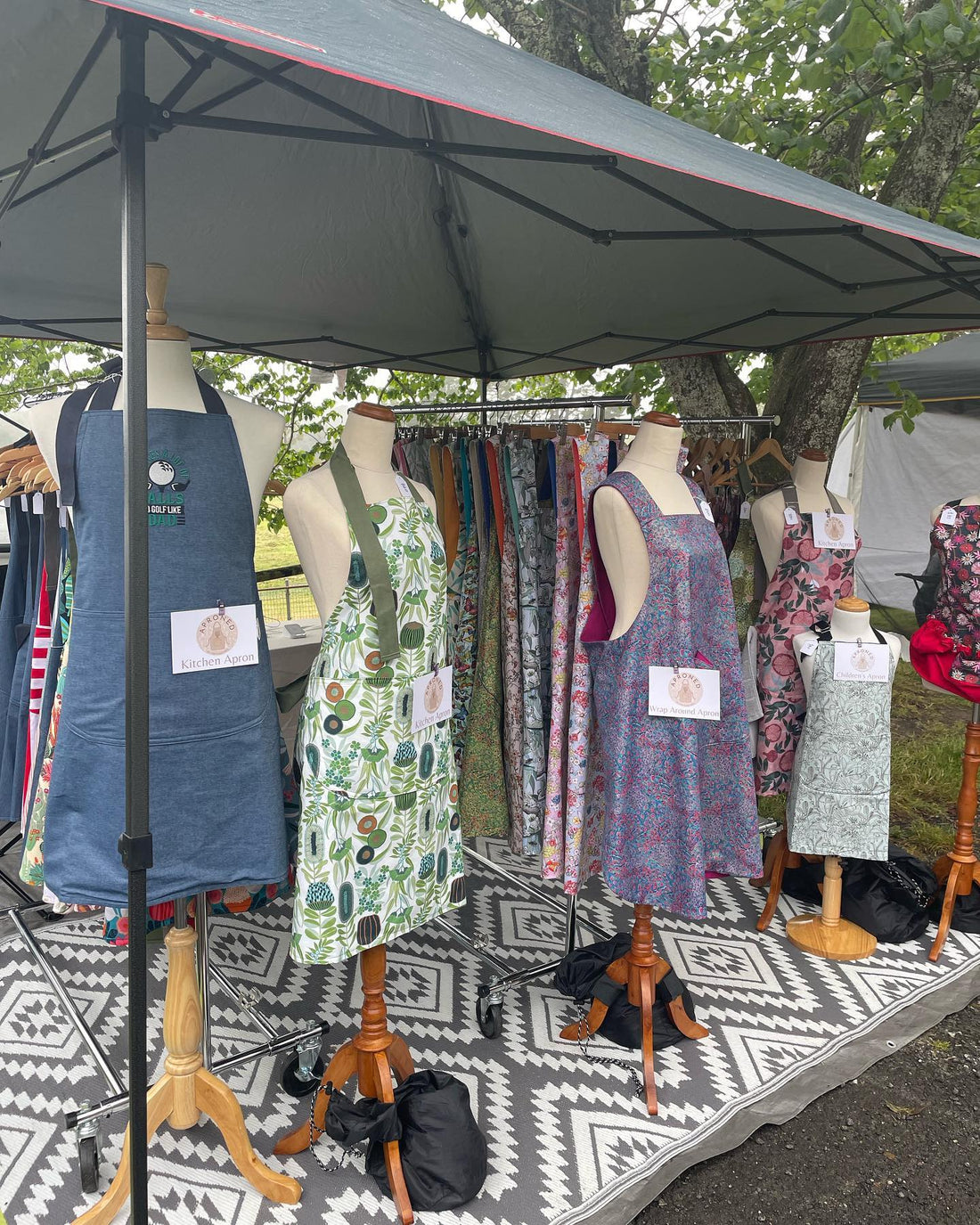The Essential Guide to Apron Usage: When and Why They're Necessary

Share
Aprons: often seen as a symbol of domesticity or a staple in the culinary world, but their importance extends far beyond these realms. In this article, we will explore the various scenarios and professions where aprons are not just a protective layer but a necessary tool.
Why Wear an Apron?
The primary reason for wearing an apron is protection. Aprons shield your clothing and, in some cases, your skin, from a variety of potential hazards like spills, stains, heat, and harmful substances. They also serve as a uniform or a signifier of a role, especially in customer-facing positions.
1. In the Kitchen: A Chef's Armor
The most common image that comes to mind when thinking of aprons is that of a chef or a baker, bustling in a kitchen. Here, aprons serve multiple purposes:
- Protection from Spills and Stains: Kitchens are high-spill environments. Aprons protect against splashes of food, oil, and other cooking ingredients.
- Safety Against Burns: Thicker aprons can provide a layer of insulation against heat, protecting against burns from hot equipment or boiling liquids.
- Convenient Storage: Many aprons come with pockets, allowing chefs to keep essential tools and gadgets close at hand.
2. In Art Studios: The Creative Shield
Artists, whether they are painters, sculptors, or craftspeople, often wear aprons:
- Protection from Art Materials: Paint, clay, and other art materials can be messy and potentially damaging to clothing. An apron protects attire from such spills.
- Health Safety: Some art materials can be toxic or irritating to the skin. Aprons provide a barrier, especially when handling chemicals or hazardous materials.
3. In Science Labs: A Layer of Safety
In scientific environments, aprons become a critical safety tool:
- Chemical Protection: Laboratories often deal with corrosive or hazardous chemicals. Aprons made of resistant materials can prevent these substances from coming into contact with the skin or clothing.
- Contamination Prevention: In sterile environments or in settings where cross-contamination is a concern, aprons can help maintain cleanliness and hygiene.
4. In Healthcare Settings: For Hygiene and Protection
Medical professionals, including doctors, nurses, and technicians, wear aprons in various scenarios:
- Infection Control: Disposable aprons are often used in medical settings to prevent the spread of infection.
- Radiation Protection: Heavy lead aprons are used in radiology to protect against X-ray radiation.
5. In Gardening and Outdoor Work: The Durable Companion
Gardening and outdoor work can be messy and physically demanding:
- Protection from the Elements and Dirt: Aprons protect against dirt and debris while
working outdoors, and some materials can also shield against minor scrapes and scratches.
- Tool Accessibility: Similar to kitchen aprons, those used in gardening often have pockets for tools, seeds, or other gardening essentials, making tasks more efficient.
6. In Customer Service and Retail: A Touch of Professionalism
In customer-facing roles like baristas, servers, or shop attendants, aprons serve a dual purpose:
- Uniformity and Brand Representation: Aprons can be part of a uniform, presenting a professional and cohesive image to customers.
- Functional Use: Pockets in aprons allow for storing pens, order pads, or other necessary items.
7. In Housekeeping and Cleaning: The Practical Barrier
For those involved in cleaning or housekeeping:
- Protection from Cleaning Agents: Cleaning often involves the use of chemicals that can stain or damage clothing. Aprons provide a protective barrier.
- Utility and Convenience: Pockets in aprons can hold cleaning tools and supplies, making the task more manageable.
8. In Hair and Beauty Salons: Style Meets Functionality
In salons, aprons are essential for both stylists and clients:
- Protection from Hair and Chemicals: Aprons protect clothing from hair clippings and products like dyes and bleaches.
- Professional Appearance: Stylists' aprons can also be a part of their professional attire, showcasing style while being functional.
Aprons, in their various forms, play a crucial role in many professions and activities. They are not just about keeping clothes clean; they are about safety, functionality, and professionalism. Whether it’s in a bustling kitchen, a vibrant art studio, a scientific lab, or a buzzing salon, aprons provide an essential layer of protection and convenience. Their use transcends mere practicality; they are a testament to the dedication and professionalism of those who wear them.
Next time you tie on an apron, consider the significance it holds in your task at hand. It’s not just a piece of fabric; it’s a tool, a protector, and in many cases, a necessary part of your work. Aprons may seem simple, but they are a fundamental aspect of many work environments, symbolizing a readiness to engage in the task at hand with seriousness and commitment.
